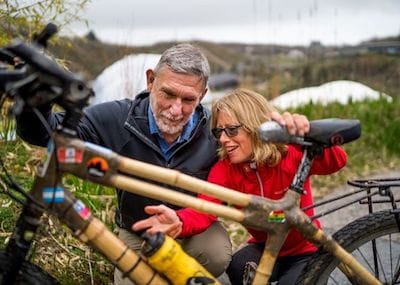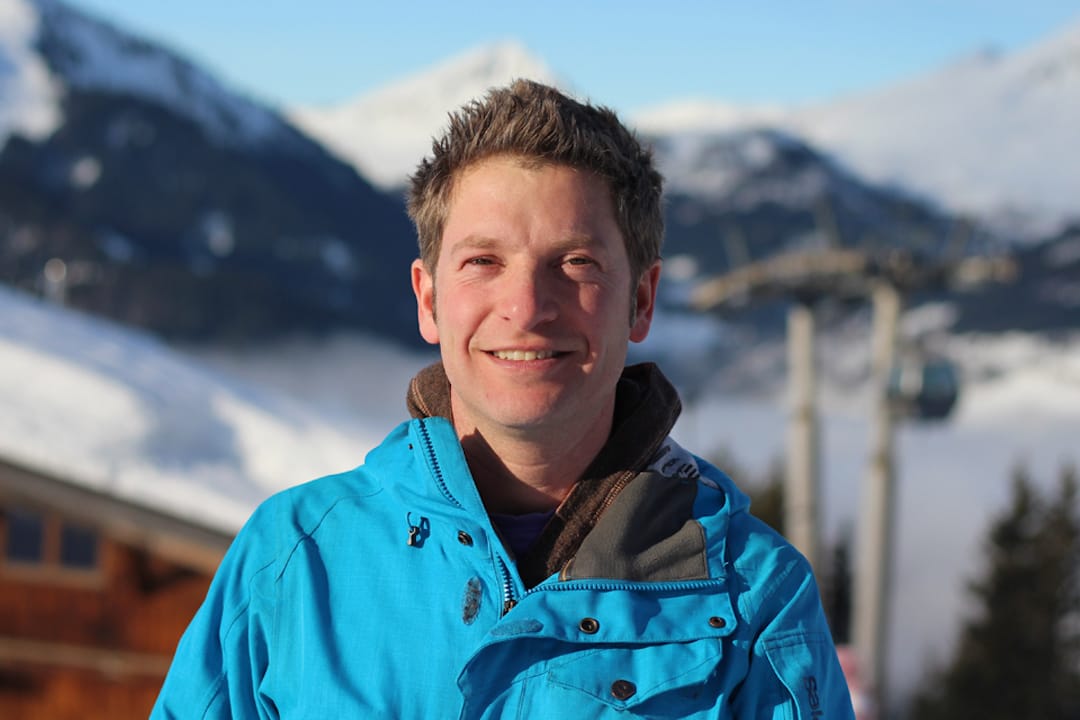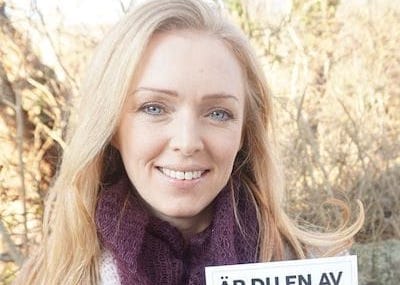This podcast is episode 3 of our #FlightFree2020 series. You can listen to the podcast, and access the rest of the series, at our podcast page.
“Ladies and gentlemen, are you ready to laugh about climate change? Please welcome to the stage Dr Matt Winning!”
This month our podcast chat is with Dr Matt Winning, a climate change policy researcher at University College London, and a stand-up comedian. He started doing comedy as ‘light relief’ from his day job, but then decided to start doing comedy about climate change.
Matt’s currently touring his show, “It’s the End of the World as we Know it”, and you can find out all about it on his website, mattwinning.com. Matt’s previous show, Climate Strange, explores what global warming means, how we’re causing it, and what we can do about it. We managed to nab some time with Matt away from an audience in order to explore some of those ideas in more depth.
Flight Free UK:
First question: What is climate change? And why is it a crisis?
Matt:
The climate is warming faster than ever before. The temperature of the planet has increased by roughly 1ºC since the industrial revolution and most of that increase has happened over the last 40 years. It’s a crisis in the sense that we’ve never had to cope with this before. All of our planning and infrastructure and where we live is based upon a world in which the temperature was very stable for 20,000 years – as long as humans have had civilisation.
"All of our planning and infrastructure and where we live is based upon a world in which the temperature was very stable for 20,000 years."
We now have more people on the planet than ever before, and most of that’s happened in the last 50 years. So being able to deal with this rapid change in our environment and how it's affecting people has become a bit of a crisis.
Flight Free UK:
When we talk about global warming, what do we mean? Well, you might remember when you were at school being taught about the greenhouse affect, which is where gases build up in the atmosphere and act like a big duvet, trapping the sun’s energy and heating up the earth’s surface temperature. Now, the climate has always seen changes, but the earth has been steadily growing hotter for the past 150 years, and in recent years, that growth has spiked. 14 of the 15 hottest years on record have occurred in the last 20 years.
But why is this even a problem? Doesn’t it just mean we will have nicer weather and we won’t need to fly to tropical places on holiday any more? Well, no. A warming planet throws all of the natural cycles out of whack. We rely on nature for everything, from the food we eat to the materials we use to clothe and house ourselves. With all this disrupted, we’re looking at a pretty bleak future.
Matt:
We’re talking about extreme weather events, problems with our global food system, and climate migration. The climate crisis is already here and it’s going to dominate politics for the next thirty years. We’re emitting more GHGs than the planet can cope with. This is happening faster than at a natural pace, which is how we know it’s manmade. Previous natural cycles have been a tenth slower in terms of the pace of change – normally a 1ºC change would take 1000 years.
Flight Free UK:
As a climate activist, you can feel that there are a lot of deniers out there. Matt’s show Climate Strange explores the six types of responses to climate change: 10% are outright dismissive, 12% are doubtful, 6% are disengaged, 25% are cautious, 29% are concerned and 18% are alarmed. So the concerned and alarmed make up a bigger proportion than the disengaged, doubtful and dismissive put together.
But if you’re getting tired of having the same old arguments with the man down the pub about how melting ice doesn’t make water levels rise, check out the excellent Adam Levy. He’s ‘Climate Adam’ on YouTube. His ‘Sea Levels and Gin and Tonics’ video is the one to watch.
So if we’re causing this, surely we can stop it? The reassuring answer is, yes. But even though the science is behind it, behaviour change is a hard sell.
Matt:
Climate change is a bit like religion – we are asked to give up our sinful pleasures now for some distant, far off benefit, and that messaging doesn’t really work for people.
Flight Free UK:
When we’re faced with an immediate threat, we are willing to change our behaviour – like cancelling a flight to a dangerous country or somewhere that has a deadly disease. But we’re less willing when the threat is less obvious and immediate. For a long time, it was easy for us here in the West to ignore climate change, because we couldn’t see the immediate effects. Now we are seeing them, with increased flooding, and the wildfires affecting Australia, so perhaps now we will start to address our carbon-heavy lifestyles. This is one of the massive injustices of climate change, that the people who will be hardest by it are the people who have been less responsible for causing it.
Matt:
It’s going to affect different people in different countries to different degrees. We need to focus on that human aspect of things. For a long time climate change in general has been seen as something that affects polar bears, but people in general care about people around them.
"For a long time climate change in general has been seen as something that affects polar bears, but people in general care about people around them."
Western countries and people from the west tend to have the most impact, but are only just being hit, and we can do the most about it. So it’s important that we care about it. That’s what Paris was about, to try to get people to commit to solving this.
Flight Free UK:
So how can a campaign like Flight Free UK lead to lasting change?
Matt:
We are all part of society, and individual change can add up. It's like what happened with smoking – the science said we shouldn’t do it, and eventually our individual behaviour caught up.
Flight Free UK:
So what role does aviation have in all this? Why is addressing flying so important in the fight against climate breakdown?
Matt:
Compared to other types of travel, flying has the highest impact. For many people it's become essential, and we need to have a conversation about what it's essential for, given how harmful it is.
It’s not just CO2 – flights also produce water vapour in the form of contrails, Nitrous Oxide, and air pollution. Radiative forcing means that these greenhouse gases have roughly double the warming effect.
"Compared to other types of travel, flying has the highest impact."
Globally, flying is responsible for around 5% of global emissions, but it’s increasing. In other industries, emissions are falling. With industries such as energy, you can switch from coal to renewables, but for aviation, the alternatives aren’t really there just now.
Flight Free UK:
While the alternatives to flying aren’t really there, there are loads of alternatives to travel. Here are the relative emissions from other transport modes from the Department for Transport: (figures for greenhouse gas emissions in kilograms per passenger kilometre)
- short haul flight: 0.16kg
- ferry, foot passenger: 0.02kg
- ferry, with a car: 0.13kg
- car 0.17kg
- motorbike 0.1kg
- coach 0.03kg
- rail: international 0.01kg
This shows the low carbon options are ferry, coach and rail. The high carbon options are driving or flying, and in fact, according to these figures, it’s as bad to be a single occupancy driver as it is to take a flight. So a journey from London to Madrid would generate 34kg CO2 on the ferry as a foot passenger, 51kg by coach, 17kg by train and a whopping 272kg by plane. That’s 16 times the emissions of taking the train.
Matt:
Lots of comedians have jokes about air travel, about airline food being terrible etc. I try to bring air travel into my comedy in a different way, and I talk about trains a lot. It’s good to use your personal experience and also be quite self-deprecating so people can see you’re not judging them. People don’t really respond to being lectured at. We need to have this conversation and hopefully through comedy I can reach people who otherwise might not have thought about this stuff.
Flight Free UK:
And that’s a message we’re also trying to push – that we should talk about climate change. Our first episode in this podcast series is almost exclusively about that – being brave enough to talk about the climate crisis at every opportunity. That podcast features Maja Rosén, who set up the Flight Free Sweden campaign, and you can find it on our podcast page. By using comedy, Matt is hopefully reaching a wider audience and getting them on board with the climate change message.
You can find out more about Matt and his tour dates on his website. He also has his own podcast, Operation Earth, where he interviews comedians about what’s going on.
You can listen to this full podcast, and access the rest of the series, at our podcast page.
Credits: interview conducted and recorded by Anna Hughes. Intro voiceover: L. Sophie Helbig. Sound effects: Josh Hill.




